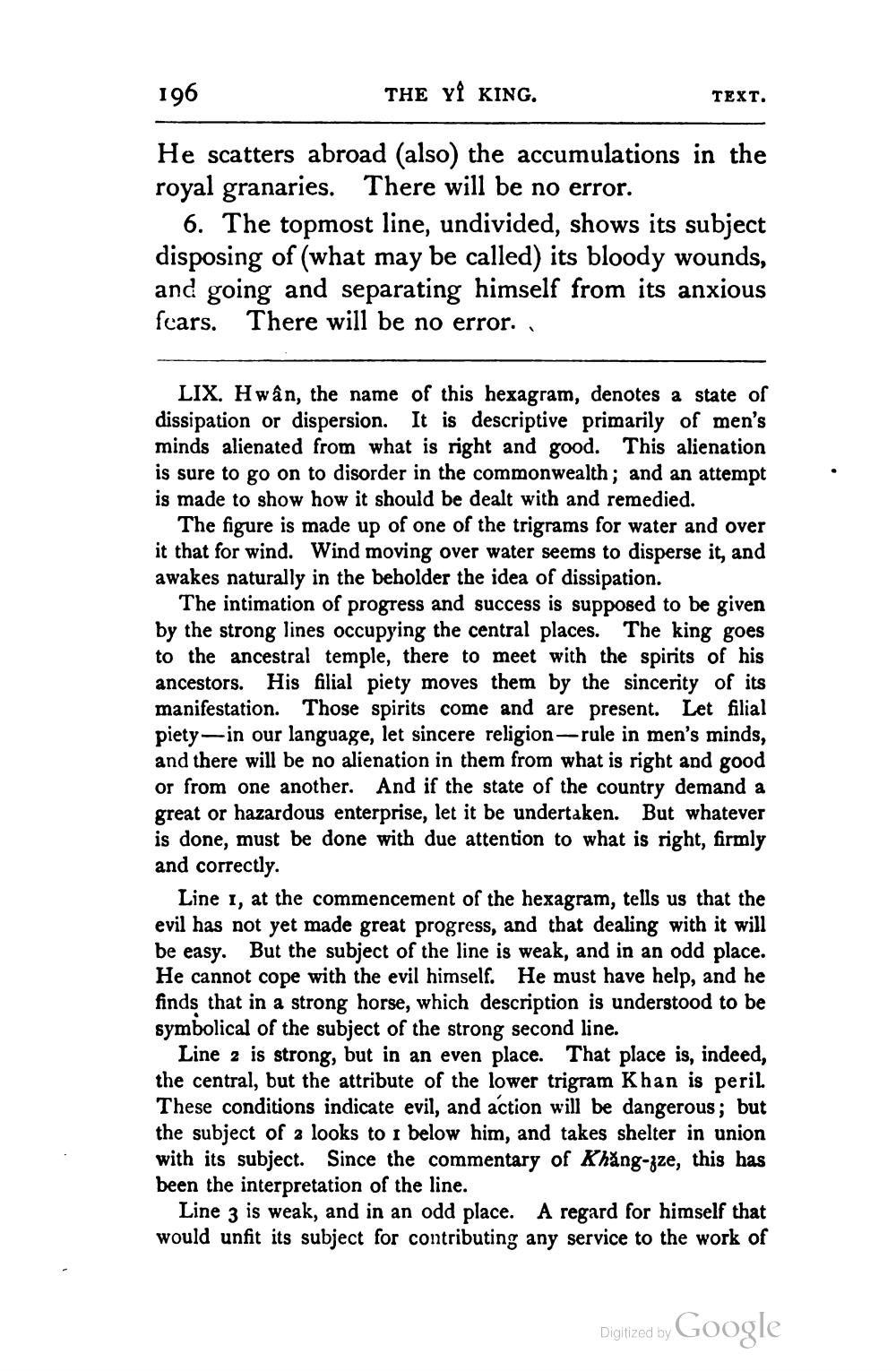________________
196
THE YÎ KING
TEXT.
He scatters abroad (also) the accumulations in the royal granaries. There will be no error.
6. The topmost line, undivided, shows its subject disposing of (what may be called) its bloody wounds, and going and separating himself from its anxious scars. There will be no error..
LIX. Hwân, the name of this hexagram, denotes a state of dissipation or dispersion. It is descriptive primarily of men's minds alienated from what is right and good. This alienation is sure to go on to disorder in the commonwealth; and an attempt is made to show how it should be dealt with and remedied.
The figure is made up of one of the trigrams for water and over it that for wind. Wind moving over water seems to disperse it, and awakes naturally in the beholder the idea of dissipation.
The intimation of progress and success is supposed to be given by the strong lines occupying the central places. The king goes to the ancestral temple, there to meet with the spirits of his ancestors. His filial piety moves them by the sincerity of its manifestation. Those spirits come and are present. Let filial piety- in our language, let sincere religion-rule in men's minds, and there will be no alienation in them from what is right and good or from one another. And if the state of the country demand a great or hazardous enterprise, let it be undertaken. But whatever is done, must be done with due attention to what is right, firmly and correctly.
Line 1, at the commencement of the hexagram, tells us that the evil has not yet made great progress, and that dealing with it will be easy. But the subject of the line is weak, and in an odd place. He cannot cope with the evil himself. He must have help, and he finds that in a strong horse, which description is understood to be symbolical of the subject of the strong second line.
Line 2 is strong, but in an even place. That place is, indeed, the central, but the attribute of the lower trigram Khan is peril. These conditions indicate evil, and action will be dangerous; but the subject of a looks to i below him, and takes shelter in union with its subject. Since the commentary of Khăng-gze, this has been the interpretation of the line.
Line 3 is weak, and in an odd place. A regard for himself that would unfit its subject for contributing any service to the work of
Digitized by Google




